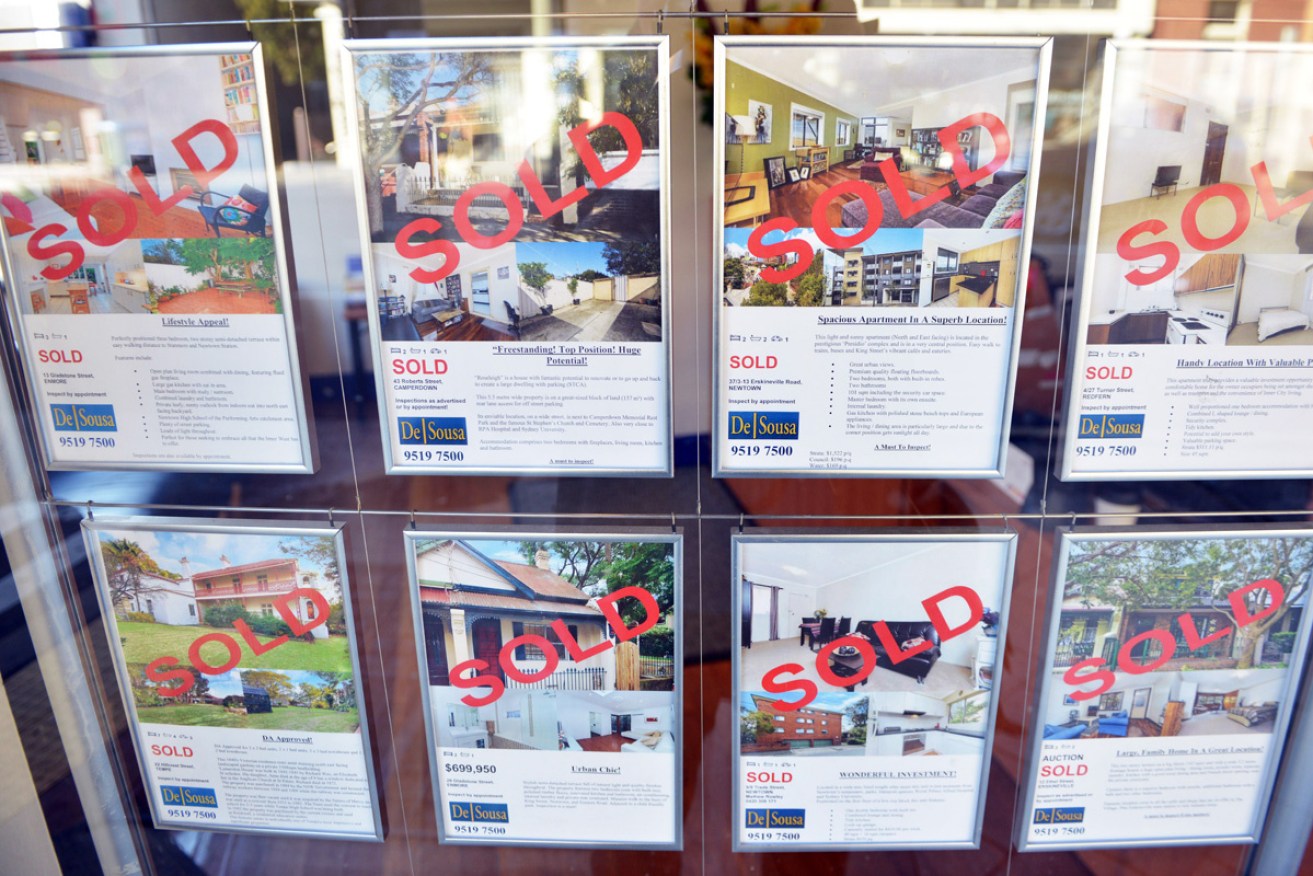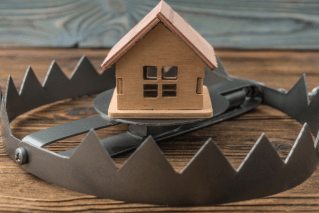Land tax debate back on as property slump hits states’ stamp duty revenues


House prices in Sydney and Melbourne showed surprising surges in August. Photo: Getty
As the property downturn starts punching billions of dollars out of state and territory government coffers, the debate has been rekindled on whether stamp duty should be replaced by a broad-based land tax.
A recent report from the Sydney Policy Lab at The University of Sydney showed that forecast revenue from stamp duty has been downgraded by $9.5 billion between 2017/18 and 2020/21.
In Victoria, the slowing market is expected to wipe $1 billion from the budget this year, while in Western Australia, Treasury is expecting to lose the same amount, but over the next four years.
The figures prompted warnings from economists that stamp-duty dependent states, such as Victoria and New South Wales, would have to rein in spending as the cash dries up.

Low property turnovers are hurting government coffers. Photo: Getty
Currently, in all states and territories, homeowners must pay stamp duty when they buy a home. The tax, paid in one lump sum is charged on a sliding scale, depending on the sales price.
If a broad-based land tax were introduced, stamp duty could be discarded and owners would be charged an annual levy, around $1500, research from The Grattan Institute shows.
Proponents of the change argue this would create a far more stable revenue for governments, while people would save more in the long run.
The benefits
The University of Sydney’s Dr Gareth Bryant said there were three key benefits of implementing a land tax nationwide.
“There are three key arguments. One is that it is efficient. Two, that it is simple and stable and, three, that it’s fair,” Dr Bryant said.
“In terms of efficiency, economists like land tax because it’s levied on unimproved land – the land itself, not the building or other improvements to the land, so it doesn’t discourage productive uses.
“Stamp duty revenues are partially to do with the value of the land but more than that, it’s about how much land is being bought and sold – so stamp duty benefits from the speculative market whereas underlying land values are more stable.
“They wouldn’t go up during booms and down during busts.”
Last year, the latest Stamp Duty Watch Report released by the Housing Industry Association showed stamp duty had increased almost three times faster than house prices since the 1980s, totalling $20.6 billion in 2015-16 alone.
How would it look?
In 2012, the ACT began to phase out stamp duty over a 20-year period, replacing it with a land tax. Grattan Institute researcher Brendan Coates says other governments should follow suit.
“The main economic benefit is that people can more easily move around – to bigger or small residences or across cities. They’re not currently willing to sell their houses because stamp duty is prohibitive,” Mr Coates said.
The ACT has Australia’s most efficient tax base – every dollar of revenue raised costs the economy just 21.9 cents while NSW has the least efficient – every dollar of revenue raised costs the economy 29.7¢.
“A low rate broad property levy using the council rates base could raise about $7 billion a year for state and territory governments through an annual levy of just $2 for every $1000 in unimproved land value, or $1 for every $1000 in capital improved values,” Mr Coates said.
“Alternatively, replacing stamp duties with a progressive property tax – as the ACT has done. They chose a progressive land tax instead of a flat rate land tax, so properties on high-value land will pay more tax and those on less, will pay less.
“The quantitative revenue will be similar to what we recommend, but we think a flat rate is simpler.”
A switch to land tax would leave the economy stronger and boost livelihoods, Mr Coates argued.
“We estimated that Australians could be $17 billion better off a year. It will reduce the deposit hurdle. The average stamp duty in Melbourne is $40,000 – that’s a substantial amount of money,” he said.
“By making it easier for people to move, it would also free up the excess [housing] stock, and that frees up [eases] house prices by 6 per cent we estimated, in the long run.”
The challenge is to raise enough revenue for the government to function, while not affecting those who have purchased property recently or older owner-occupiers who are asset rich but income poor.
“You do that by phasing it out over time. The ACT is doing it over a long period – you’d probably only need 10 to 15 years.”
No one likes new taxes
Dr Frank Stilwell, of the University of Sydney, argued that while he thinks a land tax would be a lot fairer on Australians, getting the political gong would be near impossible.
“Any new tax is unpopular, and a tax that can be derided as a impost on the family home is not politically an easy road to go down,” he said.
“Stamp duties are the single most lucrative form of revenue for state governments and they have a political acceptability because everyone is used to them. A land tax would be equitable, but it would be political dynamite.
“We’ve got the possibility of a very good tax base in the land tax, but we can never use it. It’s tragic.”










